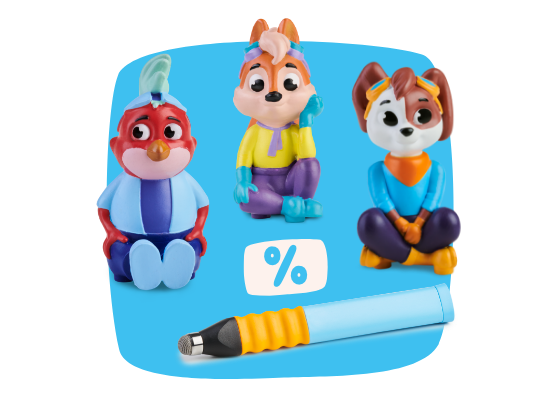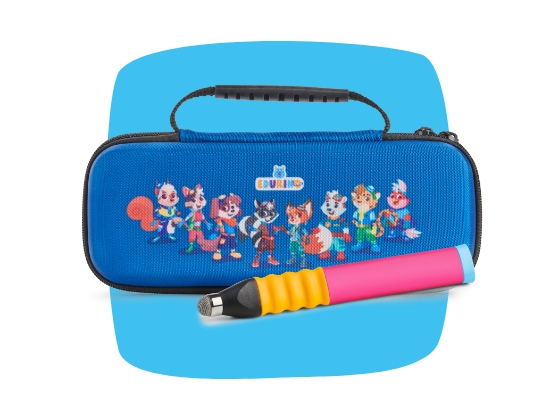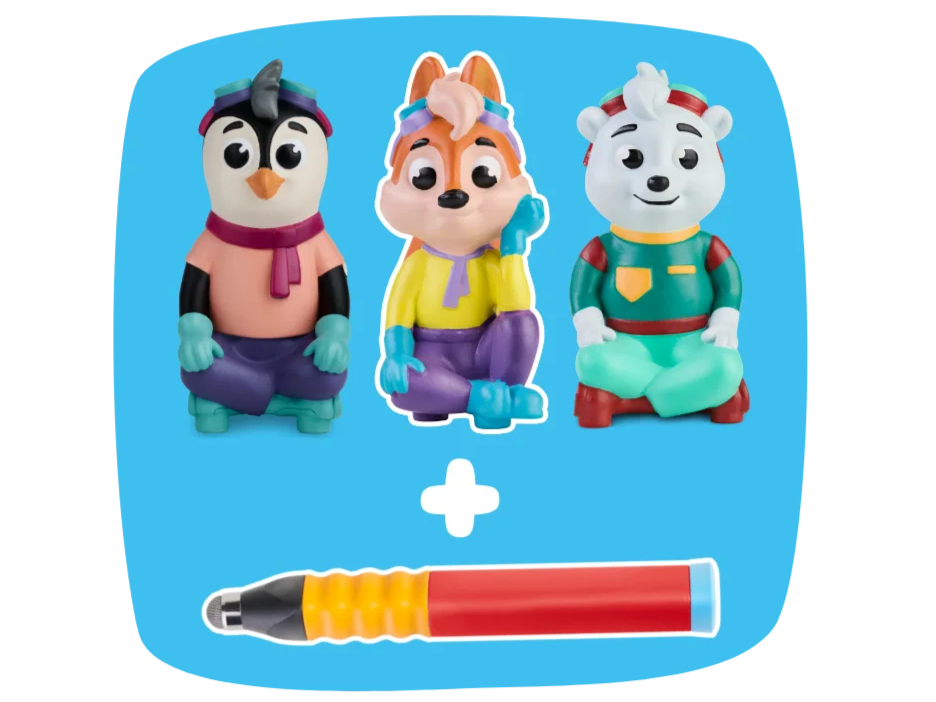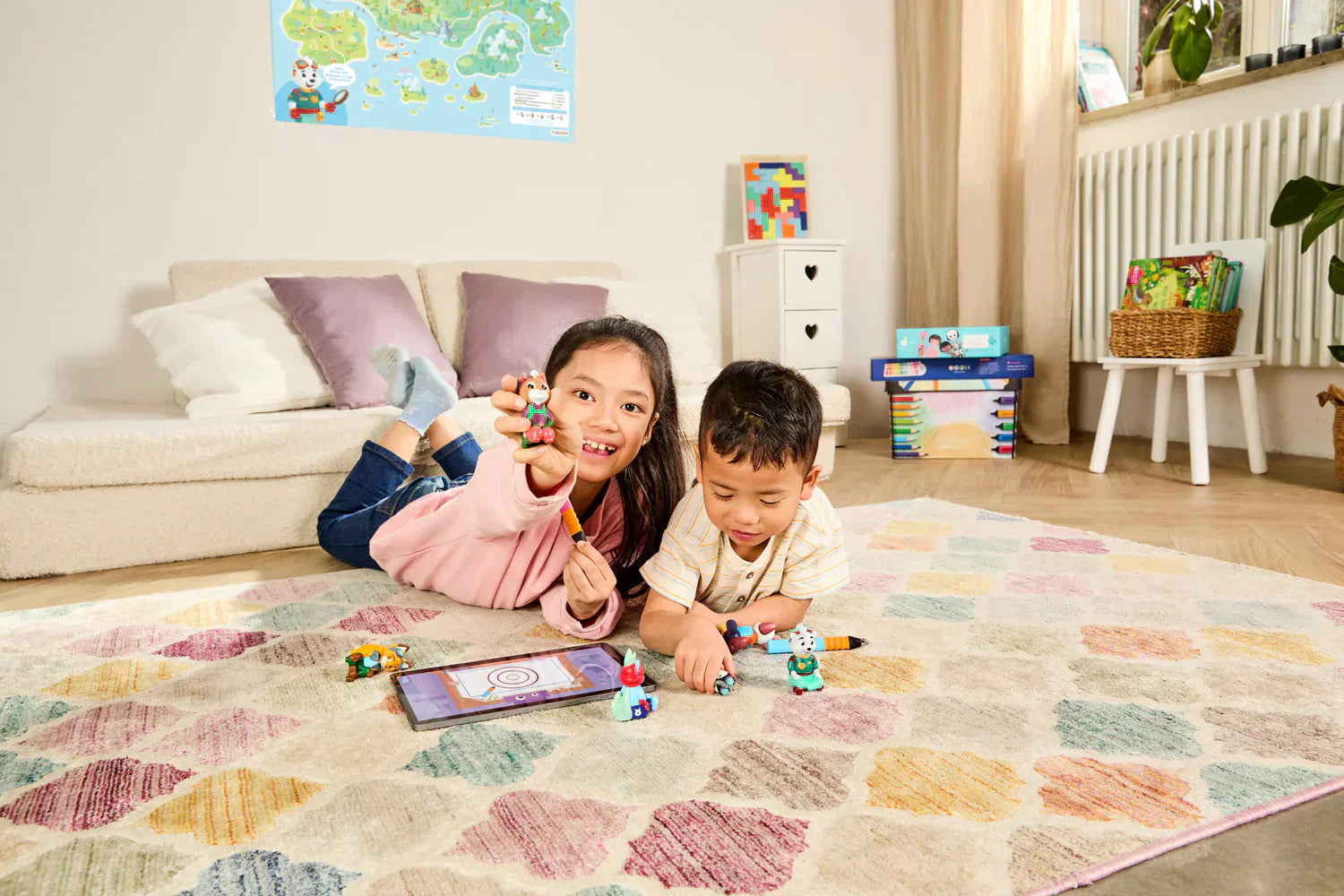With half-term and school holidays approaching, you may feel overwhelmed by the thought of having to fill your child's day.
With eight extra hours a day, it can be stressful to figure out what to do that is both fun and supports your child's development.
To help you keep your child meaningfully occupied, we at EDURINO have compiled the best productive activities for children to do during school holidays.
Set up a craft table to encourage visual learning
A craft table is the perfect workspace for the week your child is off school. It offers countless possibilities, provides hours of fun, and is a permanent place children can return to every day whenever they want—thus developing their independence.
Crafting is a great way to develop your child's fine motor skills, improve their hand-eye coordination, and enhance their visual learning. It can be done with you or as a standalone activity, making it perfect for any parent who has to work during this half-term break.
Provide your children with craft materials such as:
- pens and paper
- Glue and scissors
- Glitter, felt and wool
You can even incorporate natural materials like flowers, leaves, pine cones, and chestnuts into your craft table.
The perfect activity for craft-loving children: Let your child make a crown out of leaves. Depending on their age, they can either glue leaves onto a strip of paper to form a crown, or—if they're older and their motor skills are more developed—weave the leaf stems into a mesh, similar to a daisy chain.
Crafting with scrap materials is also a great way to encourage your child's creativity – collect old cardboard boxes, yogurt cups, and toilet paper rolls and encourage them to make things like cars, rockets, or castles out of these "waste pieces."
Discover outdoor activities for children and develop their motor skills
Outdoor activities have been proven to improve children's mood and behavior.
A walk in the fresh air can boost creativity, critical thinking, concentration, and improve motor skills—so grab your boots and go on an adventure.
To motivate your child during the walk, involve them in the journey. For example, have them read the map to encourage orientation skills. This also gives them a sense of ownership of the walk and builds their self-confidence.
Consider some educational games for your walk that involve observing birds or insects. You can even bring a magnifying glass so your child can see nature up close—encourage them to look under rocks or tree trunks.
Before you set off, you can also print out pictures of specific wild animals to see if you spot them along the way. Once your child has identified the animals, you can tell them interesting facts about the animals and insects they've discovered.
Also give him a matchbox so he can take small, harmless treasures from nature with him.
Ensure mindful screen time for children
Screen time for children may be a taboo subject for some, but it's not always a bad thing. In fact, a previous study (1) by EDURINO found that 90% of parents of elementary school children believe it's important for their children to develop strong digital learning skills.
The key is to ensure your child's screen time is used consciously and not just to stimulate dopamine. Try the following:
-
Choose interactive learning games for children that combine digital fun with physical learning.
- Set boundaries and encourage regular screen breaks. Use time-limited games to minimize tantrums at the end of the game.
- Find out what your child is watching or playing.
Encourage your child to play independently to take time for themselves
Individual activities and tasks for your child can encourage independent play and creativity. Independent play is incredibly important for children, as it stimulates their imagination, strengthens their problem-solving skills, and teaches them patience and perseverance.
Depending on your child's age, you could do the following:
- Ask them to create a song or dance that you can watch as a spectator.
- Give them a puzzle to solve. With all learning games, make sure they're challenging for your child, but also appropriate for their abilities – a game that's too easy or too difficult can cause them to give up!
- Organize a treasure hunt in your house or garden. The clues can be as easy or difficult as you like—you could give clues like "The next clue is hidden with something cold" and lead your child to the refrigerator, or you could continue with riddles to really challenge them!
Bake treats to promote reading and math skills
Baking is an important way to develop your child's fine and gross motor skills and can be similar to sensory play for some children—so don't be afraid to make a mess!
You can also use this as an opportunity to improve your child's reading and counting skills by having them read along with the recipe.
Choose simple recipes like muffins, sugar cookies, or cornflake cake so your child can really get involved and develop a sense of ownership over the task.
For younger children, make sure they have a secure footing so they can participate in the task.
1 The study was conducted online by Research Without Barriers – RWB between September 27, 2023, and October 2, 2023. The sample included 1,000 UK parents of 4- to 8-year-olds. All research conducted complies with the UK Market Research Society (MRS) Code of Practice (2023). RWB is registered with the Information Commissioner's Office and complies with the DPA (1998).








